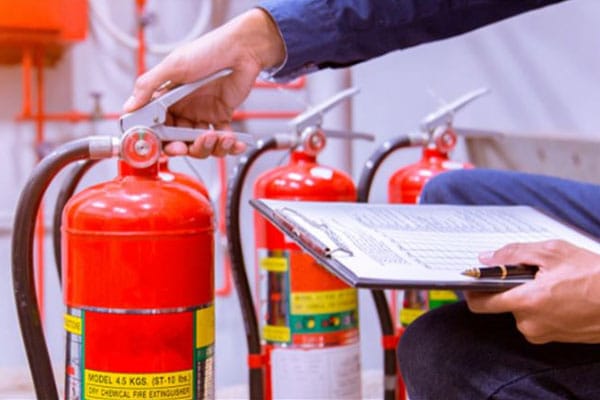Identifying the Risks for Fire Protection Contractors
Fire protection contractors face numerous risks during installation, maintenance, or inspection of fire safety systems. These risks include workplace injuries, property damage, and potential third-party liabilities. Industry statistics show that accidental damage during fire protection work can result in significant financial setbacks. Handling complex fire suppression systems, dealing with hazardous materials, and working in challenging environments heighten the chances of incidents resulting in high costs for medical care, equipment replacement, and legal fees.
A recent National Fire Protection Association study highlighted that over 80,000 non-residential building fires were reported in the U.S. last year, stressing the importance of diligent fire protection practices. Given these risks, having appropriate insurance for fire extinguisher contractors is essential to protect against significant financial losses and liabilities, ensuring business stability and longevity.
Why Insurance Is a Must-Have
In order to reduce the financial risks connected to fire prevention services, insurance is essential. It provides a safety net for fire protection contractors, ensuring they can handle unexpected events without jeopardizing their business operations. Adequate insurance coverage can lead to smoother project executions, fewer disruptions, and overall business stability. Without proper insurance, fire protection contractors may face bankruptcy or severe financial strain from lawsuits, property damage, or on-the-job accidents. This affects not only the contractor but also their clients, employees, and stakeholders, creating instability.
Types of Crucial Insurance Policies

Fire protection contractors should consider obtaining several types of insurance policies to safeguard their business. These include:
- General Liability Insurance: Covers third-party bodily injuries and property damage that may occur during fire protection services. This kind of insurance shields contractors from lawsuits and claims stemming from unintentional harm to a client’s property or injury to outsiders while they are working on the job site.
- Workers’ Compensation Insurance provides coverage for employees who get injured or ill while on the job. This insurance is crucial as it not only covers medical expenses and lost wages for injured workers but also helps them comply with legal requirements to avoid potential fines or legal action.
- Professional Liability Insurance: Protects against negligence claims or errors in professional services. For example, this insurance can pay for any losses or legal defense costs if a fire prevention system fails because of a mistake in design or installation.
- Commercial Property Insurance: This type of insurance safeguards the contractor’s physical assets, such as office buildings and equipment. It covers losses due to events like fire, theft, or natural disasters, ensuring that contractors can quickly recover and resume their operations without significant financial strain.
Tips for Selecting the Right Insurance
Choosing the right insurance coverage for your fire protection business involves careful consideration and strategic planning. Here are some tips to help you make informed decisions:
- Assess Your Risks: Identify the risks associated with your fire protection services to determine the necessary coverage type. This involves an in-depth analysis of your operations, the nature of your projects, and the potential hazards you might encounter.
- Consult with Specialists: Speak with insurance advisors specializing in construction and fire protection. Their expertise can help you understand the specific coverage options and guide you in selecting the most suitable policies for your business needs.
- Compare Multiple Quotes: Obtain quotes from insurance companies and compare coverage options and costs. This will help you find competitive rates and comprehensive coverage for your budget.
- Review Policy Exclusions: Make sure to understand any exclusions in the policy to avoid unexpected gaps in coverage. Knowing your policy’s limitations ensures that you are fully aware of what is and isn’t covered, helping you plan accordingly.
- Regularly Update Your Coverage: As your business grows, update your insurance policies to cover new assets and increased risks. Regular reviews and coverage adjustments will protect your business against evolving threats and changing regulatory requirements.


